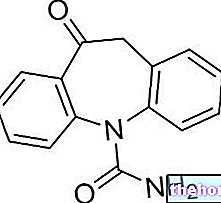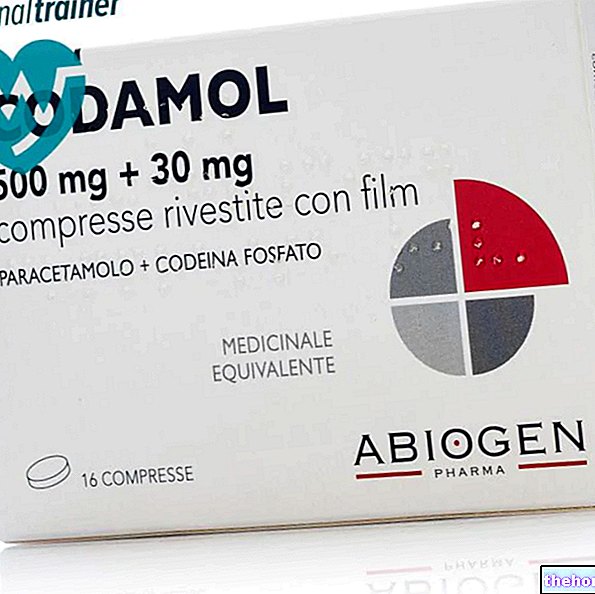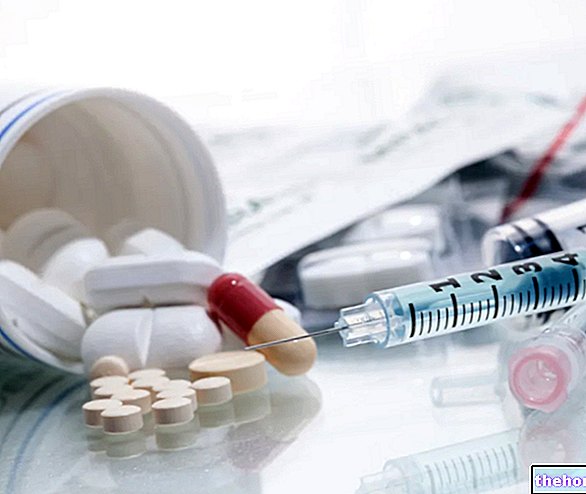PERIDON ® is a domperidone-based drug.
THERAPEUTIC GROUP: Drugs for functional gastrointestinal disorders - prokinetics.

Indications PERIDON ® Domperidone
PERIDON ® is used to relieve the patient of symptoms such as nausea, vomiting, epigastric swelling, abdominal pain and gastrointestinal regurgitation.
In pediatric age PERIDON ® can be used successfully in the treatment of nausea and vomiting.
PERIDON ® Domperidone mechanism of action
PERIDON ® is one of the most used drugs in the treatment of nausea and vomiting, thanks to its strong anti-emetic properties. Its therapeutic action is to be found both in the antagonistic action against dopamine receptors expressed at the gastrointestinal level, and in a central action in the post-rema area of the blood brain barrier.
Pharmacodynamic studies, however, have shown that the main effect of domperidone is the peripheral one, useful in guaranteeing, among other things, an improvement in intestinal tonicity as well as an effective progression in the proximal-distal sense of the intestinal contents, also reducing episodes of gastric reflux.
The formulation in coated or effervescent tablets makes it particularly easy to take this medicine, which rapidly absorbed in the gastrointestinal tract, reaches its maximum plasma concentration in 30/60 minutes, while those in suppositories allow a more rapid and better absorption.
Following extensive hepatic metabolism and a half-life of around 8 hours, the active ingredient is mainly eliminated in the faeces.
Studies carried out and clinical efficacy
1. DOMPERIDONE AND DYSPEPSIA
Am J Gastroenterol. 2001 Mar; 96: 689-96.
Efficacy of cisapride and domperidone in functional (nonulcer) dyspepsia: a meta-analysis.
Veldhuyzen van Zanten SJ, Jones MJ, Verlinden M, Talley NJ.
Domperidone treatment has been shown to be particularly useful in reducing epigastric pain, abdominal distension and the sensation of nausea in patients with functional dyspepsia, without the occurrence of clinically relevant side effects.
2. DOMPERIDONE IN CLINICAL PRACTICE
Ann Pharmacother. 1999 Apr; 33: 429-40.
Domperidone: a peripherally acting dopamine2-receptor antagonist.
Baron JA.
The excellent therapeutic efficacy of domperidone, as a dopamine receptor antagonist, has guaranteed the possibility of using this active ingredient in the treatment of various symptoms such as nausea, vomiting, abdominal pain, abdominal distension and diabetic gastropathy, being able to be used effectively also in place of metoclopramide.
3. THE "INEFFECTIVENESS OF DOMPERIDONE IN THE TREATMENT OF NEWBORN REFLUX
J Perinatol. 2008 Nov; 28: 766-70. Epub 2008 Jun 26.
Short-term effect of domperidone on gastroesophageal reflux in newborns assessed by combined intraluminal impedance and pH monitoring.
Cresi F, Marinaccio C, Russo MC, Miniero R, Silvestro L.
Gastroesophageal reflux is a particularly evident condition in newborns, probably associated with hypotonia of the esophageal sphincter. Contrary to what was expected, the use of pro-kinetics has not proved useful in reducing these episodes, on the contrary it has determined a paradoxical increase in reflux episodes probably linked to an increase in peristaltic incoordination.
Method of use and dosage
PERIDON ® Domperidone 10mg coated tablets, or Domperidone 1mg / ml effervescent granules for oral suspension, Domperidone 60mg adult suppositories, Domperidone 30mg children's suppositories:
therapeutic treatment should begin under strict medical supervision, with the dosage of one or two tablets or sachets for 3 or 4 times a day or a suppository once or twice a day, and continue for 4 weeks, at the end of which, it would be appropriate consult your doctor.
For pediatric patients, close medical supervision is recommended, with significantly reduced dosages compared to adults.
It would be preferable to take the drug, before meals, in order to optimize the absorption of the active ingredient.
Always consult your doctor before taking PERIDON ®
PERIDON ® Domperidone warnings
Given the massive hepatic metabolism that domperidone undergoes, it would be advisable to avoid or pay particular attention to the administration of PERIDON ® in patients with impaired liver function.
The same caution should also be maintained in patients with impaired renal function.
The correct formulation of the dosage, a medical task, is particularly important in order to avoid overdose reactions, responsible for neurological symptoms and extrapyramidal manifestations, particularly frequent in children.
Capsules and effervescent granules contain respectively lactose and aspartame, therefore its intake could be associated with even serious side effects in patients with lactose intolerance, galactose / glucose malabsorption, lactase enzyme deficiency or in case of increased exposure to hyperphenylalaninemia.
PREGNANCY AND BREASTFEEDING
During pregnancy and breastfeeding it is important to ask your doctor or pharmacist for advice before taking any medicine.
Peridon should only be used in pregnancy if justified by the expected therapeutic benefit.
Breastfeeding
Domperidone is excreted in human milk and breastfed infants receive less than 0.1% of the dose adjusted for maternal weight. The occurrence of adverse effects, particularly cardiac effects, cannot be excluded after exposure through breast milk. In this case, it is necessary to decide whether to cease breastfeeding or to cease / suspend domperidone-based therapy by evaluating the benefits of breastfeeding for the child and the benefits of therapy for the mother. Caution should be exercised in the event of risk factors that prolong the QTc interval in breastfed infants.
Interactions
Given the extensive hepatic metabolism of domperidone, supported by cytochromial CYP3A4 enzymes, the concomitant intake of inhibitors of this enzyme such as ketoconazole and erythromycin, could alter the pharmacokinetic and pharmacodynamic properties of the active ingredient, making both the therapeutic effect and the potential effects unpredictable. collateral.
Contraindications PERIDON ® Domperidone
PERIDON ® is contraindicated in patients in whom the increased motility of the gastrointestinal tract may be associated with worsening of the health conditions of the same or in patients with increased prolactin production.
This medicine is also contraindicated in case of known hypersensitivity to domperidone or one of its excipients.
Undesirable Effects - Side Effects
Clinical studies and post-marketing monitoring have shown a good tolerability of the drug. Gastro-intestinal, immunological or neurological disorders were rare, while more frequent, especially in predisposed patients, was the onset of hyperprolactinemia, which tends in any case to resolve spontaneously and completely once therapy is suspended.
Note
PERIDON ® can only be sold under medical prescription.
The information on PERIDON ® Domperidone published on this page may be out of date or incomplete. For a correct use of this information, see the Disclaimer and useful information page.




























